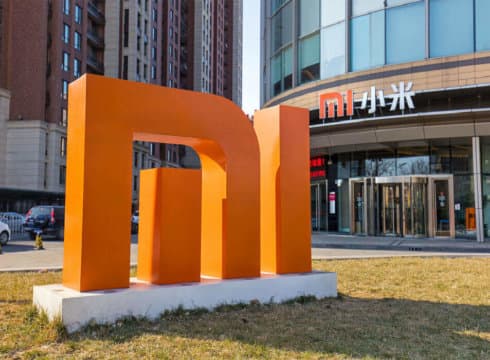Coolpad Chief Intellectual Property Officer Believes That Indian Laws Protect Patent-holders' Interests
Inc42 Daily Brief
Stay Ahead With Daily News & Analysis on India’s Tech & Startup Economy
Ahead of its IPO, Chinese smartphone maker Xiaomi is reportedly finding it difficult to wrangle out of its legal battle with Coolpad Group Ltd, a China-based investment holding company principally engaged in the provision of wireless solutions and equipment. The battle, which started over allegations of patent infringement by Xiaomi in China, is on the cusp of moving to Indian courtrooms now.
The reason for this move is that Coolpad believes Indian laws protect patent-holders’ interests.
It must be noted that India is one of the key markets for Xiaomi. The company has announced that the Indian market contributed 32% of its total global revenue of $18 Bn in 2017 via three of its top five sales channels. It is also expanding its product portfolio in India and is speculated to be setting the ground for retail FDI in the country.
Coolpad Vs Xiaomi: What’s The Case?
Earlier in May 2018, Coolpad sued Xiaomi for infringement of four patents. These include the Dual-Sim-Card-Standby technology that earned Coolpad the second prize for Technological Progress, the Shenzhen Mayor Award, and the China Patent Award. The other three are intellectual infringements that include the ‘icon relocation to another page’ feature.
Reports indicate that Coolpad’s chief intellectual property officer, Nancy Zhang, first noticed the patent infringement by Xiaomi in the year 2014. The company promptly communicated its concerns to Xiaomi and asked for a cooperative settlement, but hasn’t heard back from the latter yet.
At the start of 2018, Coolpad Group’s subsidiary Yulong Computer Telecommunication Scientific filed seven patent infringement cases in two different courts in China against Xiaomi Telecom, Xiaomi Technology, and Mi Home Business. It has also sought an immediate bar on production and sale of certain mobile phone models by Xiaomi.
Another media report said, “Coolpad’s CEO claims that earlier his company held over 10,000 patents that have allegedly been stolen. He now intends to recover the ‘losses’ from said infringement by suing ‘infringing’ companies.”
Indian Courts Protect Interests Of Patent-holders: Coolpad
Zhang, in a media statement, iterated her trust on India’s courts and said she believes that Indian laws protect patentholders’ interests. She also cited the example of Ericsson suing Xiaomi in Delhi High Court, which lead to an interim bar on sales of specific Xiaomi phones.
In 2014, Ericsson had sued Xiaomi for eight patent infringements and won the case. However, Xiaomi fought back and, later, the court had allowed it to sell Qualcomm-based devices in India but barred the sale of Mediatek-chipset based devices. Further, in March 2016, the court revoked the interim injunction on Xiaomi in the ongoing patent tussle with Ericsson in India.
But Zhang still has hope. “India is one of the key markets, and India has the reputation for protecting intellectual property rights, has better laws and systems to protect patent holders. As we saw in the Ericsson-Xiaomi case, we feel that India is a good ground for protecting patents.”
She added, “Because our products are sold in India and we’re a company focused on protecting our IP assets, we will file a case in any country where we have a good chance to get good remedies.”
The Mary Meeker’s Internet Trends 2018 report features seven Indian-origin founders camping in the US who have built high-profile tech startups. The Indian government is already focussed on building a startup ecosystem and improving ease of doing business in the country.
At a time when India is being criticised for its weak policies and strategies in various domains, the growing trust of foreign companies in the Indian legal ecosystem is worth noting. This will further give startups outside the country impetus to set up their bases in India.
For now, after passing through the China courts, will Coolpad be able to find recourse in Indian courts will be interesting to watch. Meanwhile, an unfavourable judgment for Xiaomi can close the doors of many opportunities in the booming Indian smartphone and electronics market for the company.
{{#name}}{{name}}{{/name}}{{^name}}-{{/name}}
{{#description}}{{description}}...{{/description}}{{^description}}-{{/description}}
Note: We at Inc42 take our ethics very seriously. More information about it can be found here.


